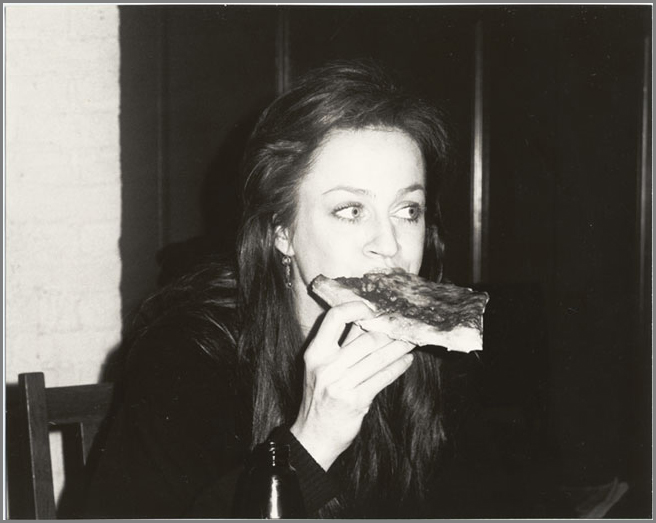| Maker(s): | Warhol, Andy | | Culture: | American (1928-1987)
| | Title: | Heather Watts
| | Date Made: | undated
| | Type: | Photograph
| | Materials: | Gelatin silver print
| | Measurements: | Mat: 16 x 17 1/2 in; 40.6 x 44.4 cm; Image: 7 7/8 x 9 7/8 in; 20 x 25.1 cm
| | Narrative Inscription: | ALPHANUMERIC: verso, lwr. ctr. (graphite): FL 04.00568; INITIALS: verso, upp. l. (graphite): RM; STAMP: verso, upp. l. (blue ink, circular stamp): AUTHORIZED BY THE / ANDY WARHOL / A / W / FOUNDATION / FOR THE VISUAL ARTS; STAMP: verso, upp. l. (blue ink, circular stamp): THE ESTATE / OF / ANDY WARHOL
| | Accession Number: | UM 2008.106
| | Credit Line: | Gift of the Andy Warhol Foundation for the Visual Arts, on loan from the University of Massachusetts Amherst Foundation. © The Andy Warhol Foundation for the Visual Arts, Inc.
| | Museum Collection: | University Museum of Contemporary Art at UMASS Amherst
|
|

|
Label Text:
2009 Curatorial Fellowship Exhibition: The Minox and the Big Shot
In 1976, Warhol obtained a pocket-sized Minox SLR 35mm camera and began to amass a collection of black and white images culled largely from life outside the studio. The portability of this new technology enabled the shift in Warhol’s photographic practice from scheduled sittings to casual snapshots. He took, on average, a roll of film a day between 1976 and 1987, producing over 100,000 photographs. Warhol selected a portion of these photographs to be printed in an eight by ten inch format, marking his picks with a grease pencil on each contact sheet. He used the prints in a variety of ways—they served as source material for paintings and drawings, they were published in books devoted to Warhol’s photography, and some were even stitched together to create art objects late in his career. The majority, however, seem more related to Warhol’s fascination with accumulation than any specific art-related activity.
Kathleen Banach
Tags:
food; women Subjects:
Photographic gelatin; Women; Food Link to share this object record:
https://museums.fivecolleges.edu/detail.php?t=objects&type=ext&id_number=UM+2008.106 |